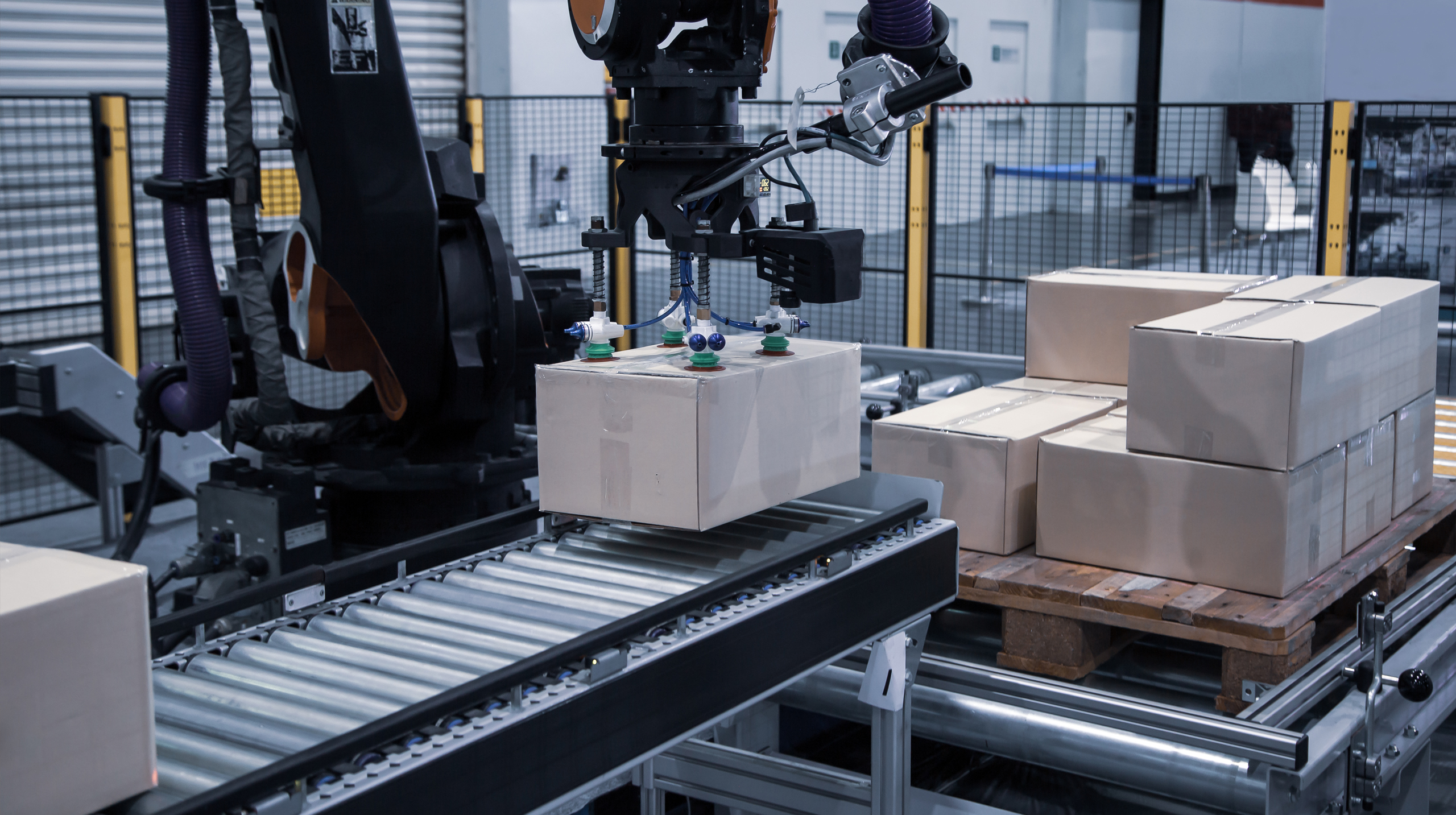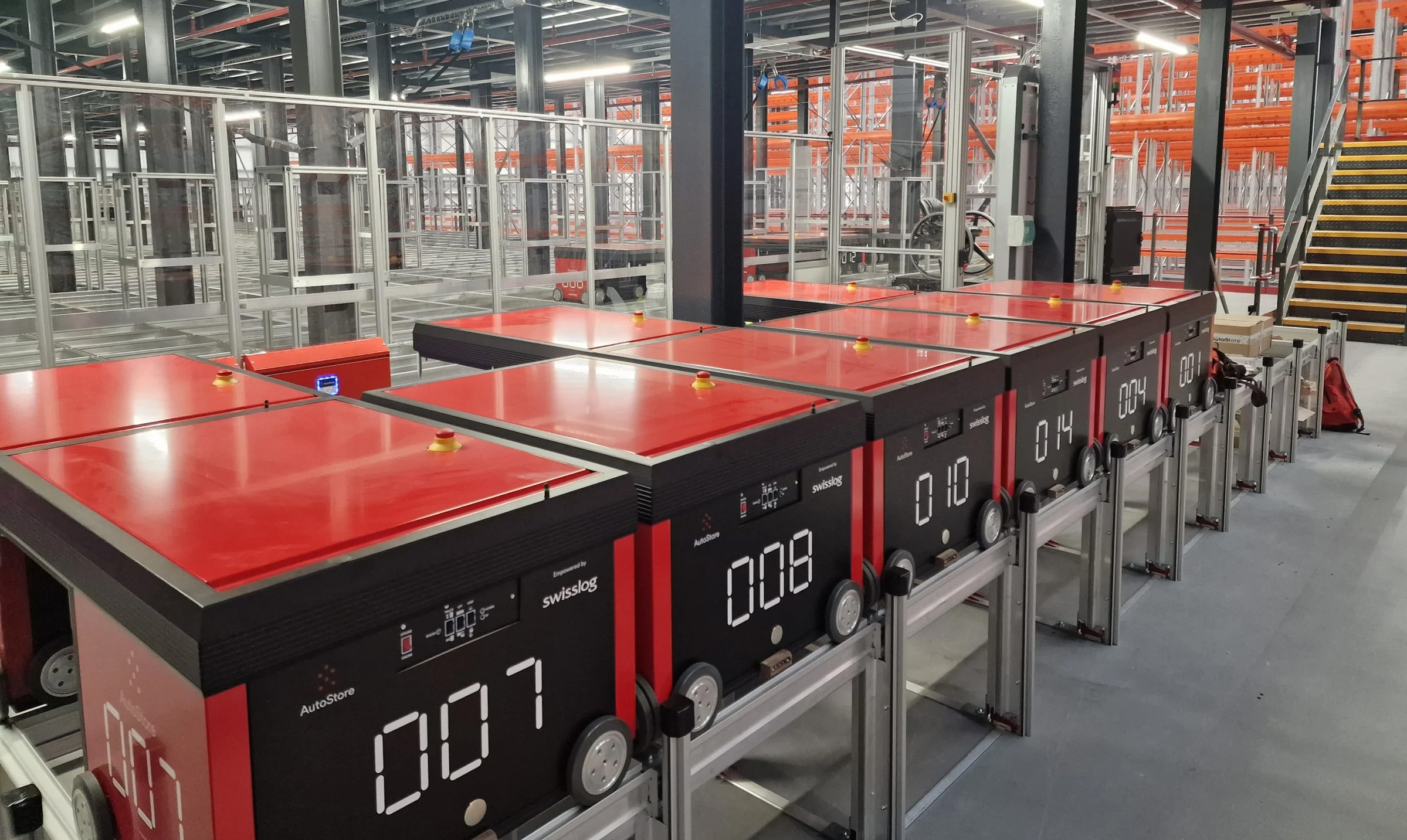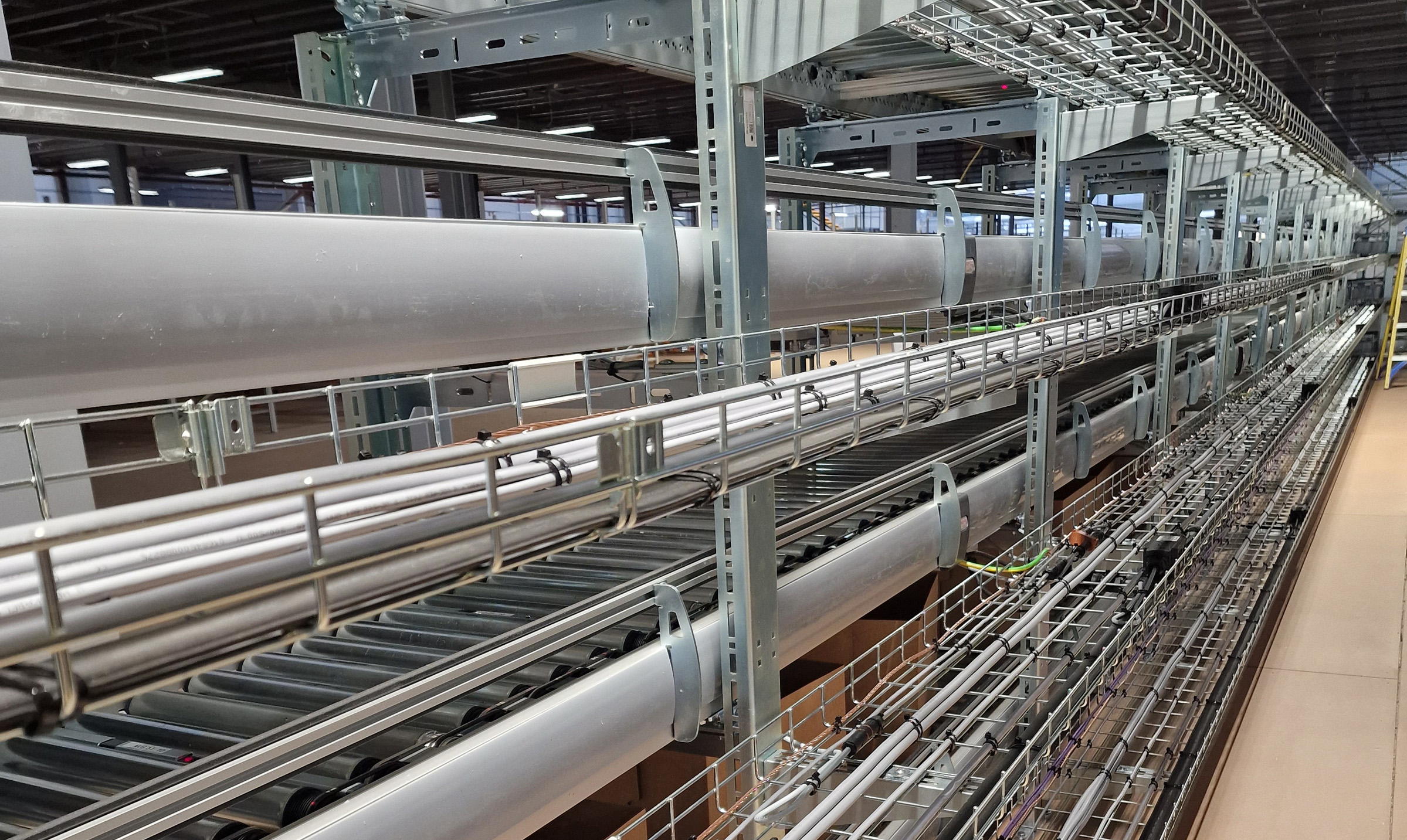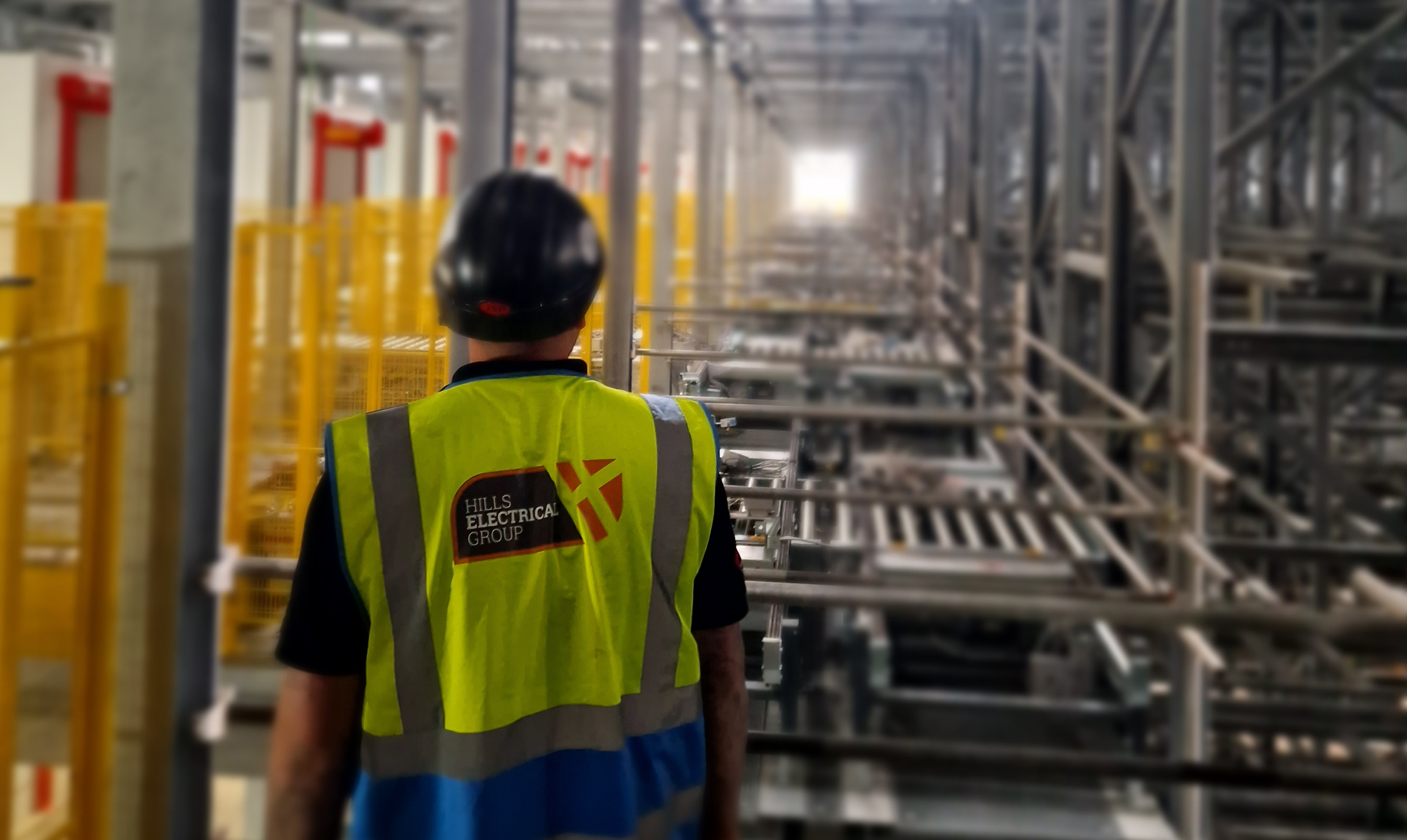DO YOU HAVE A NEW PROJECT?
Speak to a member of our team
Get in TouchAs automated storage and retrieval systems (ASRS) advance, we assess what they are, how they work and whether they’re an ideal solution to common vertical farming challenges.
ASRS stands for “automated storage and retrieval systems”. Many warehouses and manufacturing facilities worldwide are reaping the benefits of these systems.
With a global market value of $4.151.8 trillion predicted for 2028, the e-commerce boom has generated copious demand for these automated solutions to be installed.
But what about the vertical farming industry? In this article, we explain how an ASRS works and give you some valuable points to help you decide whether it’s the right solution for your business.
An ASRS, also known as ‘AS/RS’, applies production technology such as software, computers, and robotics for handling, storing, and retrieving items within manufacturing and distribution facilities. As the name suggests:
ASRS come in various sizes, technologies, and applications. Generally, they help replace large storage areas to save floor place while increasing productivity and improving the safety of operations within the facility.
ASRS technology was once considered financially out of bounds for many smaller-scale businesses. But in recent years, the advancement of its technology has facilitated numerous options suiting various sizes, speed, flexibility, and cost.
ASRS can change drastically in variation and can consist of various elements and features, including:
Most ASRS are often integrated with a WES (warehouse execution software) or WMS (warehouse management software) through a general all-in-one control panel, maintaining the power, production, and operation.
Various types of ASRS are available, all with different purposes and functionality options. Here are common forms you will find in warehouses and distribution centres across the world:
The growing popularity of ASRS comes down to the positive impact it can have on the overall productivity, safety, and efficiency for operations and mass production purposes.
As ASRS is an ideal solution for replacing and renewing items across large storage areas quickly and efficiently, it represents the perfect system to support vertical farming.
An ASRS will serve a vertical farming facility by reducing costs and increasing the opportunity for scalability while also promoting sustainability.
Essentially, vertical farming requires plants or crops to be grown in vertically stacked layers. It incorporates controlled-environmental agriculture utilising soilless farming techniques such as hydroponics, aquaponics, and aeroponics.
Vertical farming is seeing a sharp rise in demand from countries looking to adopt alternative farming methods due to unfavourable farming conditions, such as the Middle East. Another benefit is how vertical farms eliminate the need for synthetic fertilisers, soil, and harmful pesticides.
The global value of the vertical farming industry hit $1 billion in 2019 and is expected to rise at a staggering CAGR of over 25%. With such high demand placed on vertical farming and ASRS worldwide, and both offering a reciprocal solution to each purpose, this union appears as a business match made in heaven.
Ultimately, implementing ASRS technology in vertical farming will lower the environmental impact and reduce harmful chemicals while elevating traditional farming methods into a modern realm of sustainable mass production.
While vertical farming may present the future of agriculture, the challenges require high initial costs and expert planning and management. All components of light, water, nutrients, and the atmosphere, alongside space, need to be managed with the utmost precision to grow quality produce and generate profitable results.
Therefore, an ASRS presents an ideal vertical farming solution due to its automated ability to precisely retrieve and store plants and integrate them easily into the uniformed vertical environment of the farm.
An ASRS offers excellent flexibility to customise operations with cutting edge configurations serving any strategy based on growing process, crop type, and available space.
Due to variations of ASRS, the costs inevitably vary depending on the size and overall capability of the system.
Here are some average costs you may expect to pay for the various types of ASRS currently available on the market (Not our prices):
An ASRS may present high initial costs, they aim to reduce operating costs to generate a healthy ROI.
At Hills Electrical, we’ve spent the past decade designing, manufacturing, supplying, and installing top of the range mechanical solutions for various manufacturers and production companies across the UK.
We offer customisable ASRS systems to streamline your operations and reward your investment with a guaranteed ROI.
For more information about our ASRS solutions, contact us today. Our business was built on honest, expert, and professional guidance, serving our clients with the safest and most cost-effective electrical manufacturing solutions.
If you’d like to know more about us or stay up to date with the latest news, you can also follow us on LinkedIn.




Feel free to fill out our form below and a member of our team will be in touch.